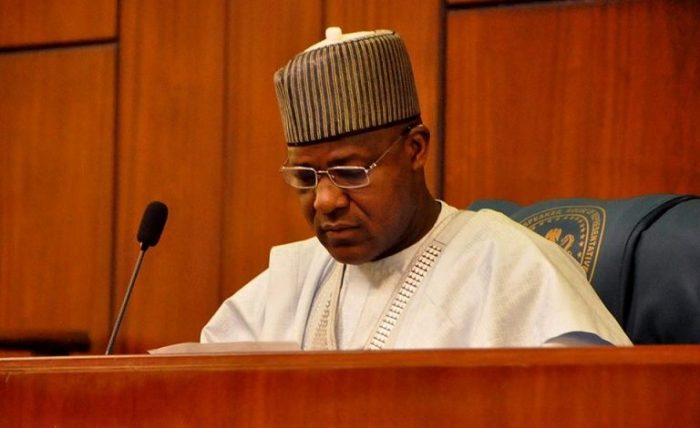The Speaker of House of Representatives, Mr Yakubu Dogara, says that the legislature is in the process of passing laws to tackle poverty in Nigeria.
He made this known on Sunday in his remarks at a sensitisation programme tagged “kick out poverty”, organised by Elizabeth Foundation, a non-governmental organization, in Abuja.
The programme was organised to commemorate the United Nations Day for Eradication of Poverty.
Dogara said that poverty eradication was closely linked to food security and rural development, and pointed out the relationship between poverty and social unrest.
He recalled that recent data from National Bureau of Statistics indicated that fewer than 112 million Nigerians representing 67.1 per cent of the country’s estimated population of 167 million lived below poverty level.
“The global poor are already above the one billion mark. UNDP sources rate Nigeria’s poverty at 62.6 per cent per capita income at 1,280 dollars and human development index at 0.47.
“These figures are simply unacceptable and challenge all of us to rise to the occasion and vanquish poverty, disease and ignorance not only in Nigeria but in the whole world.
“It is inconsistent with the social objectives set out in Chapter 2 of the Fundamental Objectives and Directive Principles of State Policy in our Constitution.
“I dare say that there is also a nexus between poverty and social unrest and insurgency.
“Thus, as it is clear from the theme for this year’s International Day for Eradication of Poverty, poverty eradication is a sure path to peace building.
“A society with more satisfied basic needs is less likely to turn to violence in solving its problems,” he said.
Dogara cited previous attempts at eradicating poverty through several programmes and policies, including those geared towards providing primary healthcare and developing agriculture.
“Nigeria as a country has evolved several programmes and policies and also set up several institutions to deal with the menace of poverty. These can be identified in the National Rolling Plans.
“Some of these programmes include Operation Feed the Nation (OFN), Green Revolution, Better Life for Rural Women, Family Economic Advancement Programme and more recently, National Poverty Eradication Programme (NAPEP).”>

